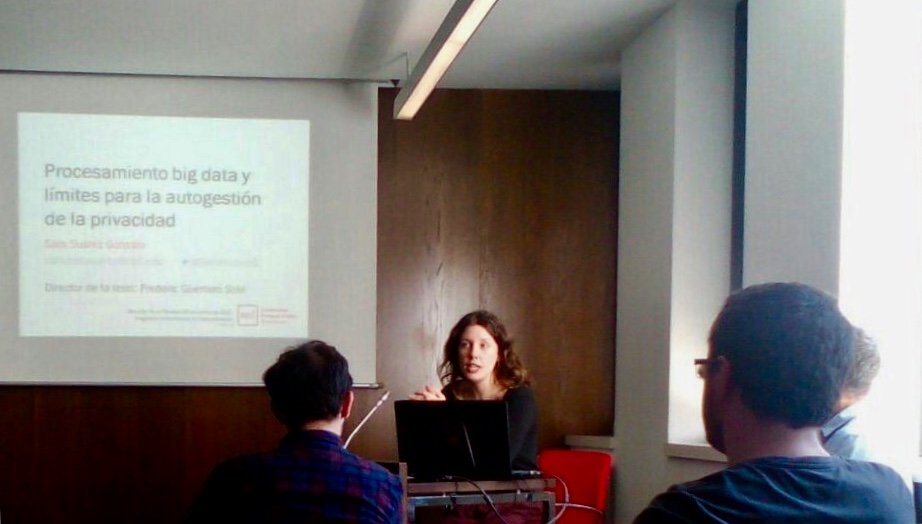Big data, politics and communication
Big data, politics and communication
Since the late 90s, the datafication of everyday life is a pervasive trend. The processing of these data allows to know the behaviours, preferences or vulnerabilities of persons, as individuals, but also as part of broader social groups (e.g.:woman, white, young, student…) and as a society.
Given the increasing economic value of data and their potential for social control, big data processing techniques have been quickly developed. The principal technological corporations, so-called GAFAM (Google, Amazon, Facebook, Apple and Microsoft), have positioned themselves among the most important worldwide corporations thanks to a business model based on the massive exploitation of the data that people give them in order to be able to use their services. One of the major achievements of these companies is to have monopolized data, turning them into a new “commodity”, and so become the most in demand media for the distribution of targeted advertising. The more data, the more precise the communication strategy can be, so they can ask more money from the advertisers.... However, due to the fact that these techniques are not much more than an optimized form of quantitative analysis, their real scope for predicting or moving people to specific actions is doubtful. The problem, rather, has to do with the inequality of power between those who manage these techniques, and the citizens and democratic powers that increasingly lose control over the data and over what these companies do with them.
Facing this situation, intellectuals such as Danah Boyd, Frank Pasquale or Soshana Zuboff, among many others, lead a school of thought, critical, not with big data technology itself (which could be beneficial for society), but with its current form; with the powers that use this technology to massively exploit data for their own interests; and with the legal framework for personal data protection, that they consider insufficient to protect people from these powers.
The doctoral thesis of Sara Suárez-Gonzalo, linked to the research group POLCOM and directed by Frederic Guerrero-Solé, engages this discussion. It studies the social and political impact of big data technologies from the lens of freedom, privacy and personal data protection. The research, which will be presented this fall 2019, is composed of several papers that analyse this question from an interdisciplinary perspective:
On the one hand, two initial publications analyse the media discourse around the social introduction of big data technologies. These studies show that, since not all social groups are equally able to define a new technology, media tend to stabilize and close the interpretative frames imposed by the market.
Another paper, “Your likes, your vote?” focuses on the Cambridge Analytica case, a data corruption scandal designed to favour the candidacies of Donald Trump during the 2016 US presidential campaign and the “leave” vote in Brexit referendum, throughout an aggressive micro-targeting operation. Beyond the fact that the strategy may have manipulated the vote of some undecided voters, the study explains that the case bring to light the existence of a technological, business and legal structure that makes a case like this not only possible, but probable.
The rest of the articles and conferences, which form the core of the thesis, analyse three factors linked to big data exploitation that make it necessary to rethink the conceptual framework of personal data protection in Europe. On the one hand, the logic of big data generation, gathering and processing techniques; on the other hand, the uncontrolled business model of digital giants; and thirdly, the growing dependence of the public powers on these corporations. The research brings up the need to rethink the value of privacy, and so the protection of personal data, from a lens that allow confronting the inequalities of power that these factors provoke.
To learn more about this research (in progress), you can check Suárez-Gonzalo publications and talks in the following link.

Sara Suárez-Gonzalo presenting her research in the Taula de Nova Recerca of the Department of Communication of the UPF
